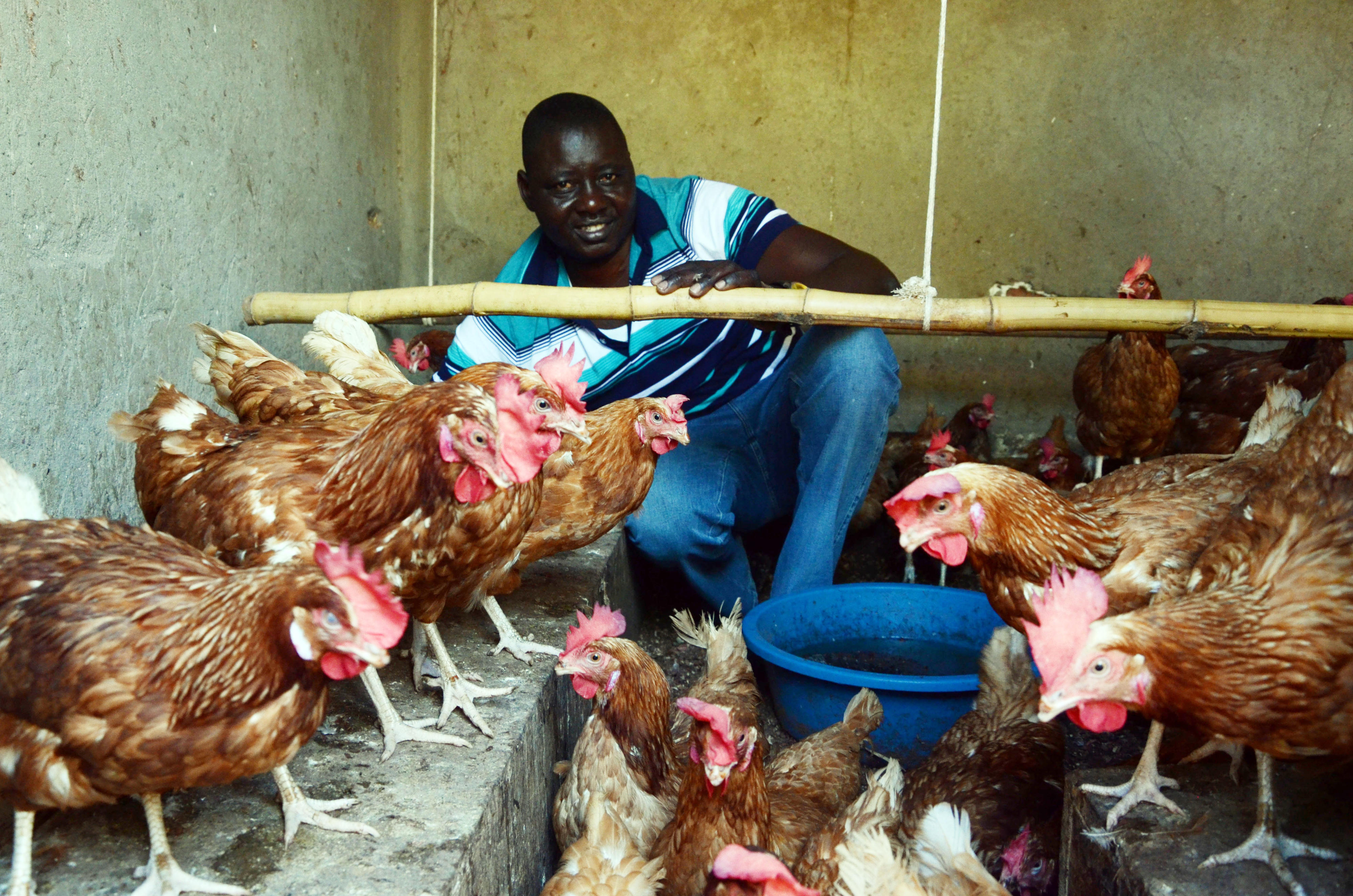Maximise egg production of your chicken

Proper management of layer chicken is vital to their egg-laying potential. Photo/George Katongole
What you need to know:
Experts contend that successful, profitable egg production begins and ends with the hen’s breeding, feeding, and care.
Whether you have a few backyard chickens as pets or rely on your chicken egg production as a means of income, optimum egg-laying capacity should be your concern.
Veterinary doctor Yahaya Were explains that many poultry keepers have had challenges with their layers especially during the cold days of the rainy season. From an expert point of view, Were shares tips that can help your birds to maximise egg production.
Put emphasis on diet
Diet, Were says, is one of the most crucial elements of chicken rearing yet it takes about 80 per cent of the poultry budget.
“This forces many farmers to go crazy with cost cutting. But this only guarantees you small eggs that become hard to market,” Were says.
He says that striking the right dietary requirements with the most nutritional feed balance keeps chickens healthy.
He explains that commercial-grade chicken feed is the best because it is optimised to give your chicken the right amount of nutrients. Poor quality feeds, therefore, may negatively impact egg production.
A healthy diet for layers includes calcium. During egg-laying, hens lose a lot of calcium which requires addition of enough calcium in their diet to keep a steady flow of eggs. Were says you might consider adding crushed oyster shells in feeds.
Some smart farmers, he adds, recycle eggshells. He says they should first be cleaned and crushed in the feed to provide the much-needed calcium.
Were says that if the chicken are molting, it is advisable to increase the protein in their diet to help regenerate feathers. Hens typically stop laying eggs during their molting phase. When chickens are losing their feathers and re-growing them, take this time to help build up their nutrient reserves.
Chicken also need a higher protein diet in the cold months to help them stay warm.
Manage stress factors
Were says some chicken may stop giving eggs when they are stressed. A case in point is when a new person tends to them during egg laying. “They can stop laying eggs instantly,” he says.
Dr Harunah Kaaya, the managing director of Chick Masters, a livestock and consultancy company in Mukono, says that stress is a big issue in layers.
He says, anxiety could also be due to constant looming fear from predators, diet, weather or inadequate space.
“First and foremost, make your chicken house more secure for the chicken,” he says.
Smaller space for layers, he says, means that lower-ranked birds are not able to move away from alphas, exposing them the risk of aggressive behaviour and even cannibalism.
Chickens, he adds, take up to 30 minutes in a nest laying eggs.
“Therefore, the nesting boxes should be clean and comfortable. You can enhance it with sawdust or recycled newspapers,” Dr Kaaya says.
Prioritise chicken health
A lot of discussion goes into chicken diseases and health problems, but did you know that a decrease in chicken egg production can often be an indicator of a serious health issue?
Were explains that a reduction in egg production with no other symptoms can often mean that your chickens have parasites. He says that mites are the most common nuisance to chicken.
He says that mites often hide in cracks and holes in chicken houses and come out at night to suck blood from the birds. Signs of infestation can include constant pecking at the feathers and belly area.
He says that because mites lay eggs, a single treatment is usually ineffective.
Diseases especially tuberculosis, fowl typhoid, Newcastle, fowl plague, aspergillosis, coccidiosis, rickets and perosis, can also be dangerous.
Mind the age
“It is important to know when it is time to let a flock go because you could be trying to force over age chicken to lay eggs,” says Dr Kaaya.
The laying cycle of a chicken usually covers a span of twelve months. Egg production begins when the birds reach about 20-24 weeks of age, depending on the breed and season. Egg production reaches the peak of about 90 per cent 6-8 weeks later before production gradually decreases after 12 months of lay.
On average, well-fed commercial grade chickens produce up to 360 eggs per cycle.
“Typically, layers’ egg production is commercially viable until they are 70-80 weeks of age. Afterwards, you should prepare to sell them off as off layers,” Dr Kaaya stresses.
Think of boosters
There is a range of poultry products that can help farmers improve egg production of layers.
Dr Kaaya mentions Amilyte, a water soluble powder that has a formulation of vitamins, electrolytes and amino acids. It is used as a supplement to promote growth and health in poultry, it can improve fertility, egg production and hatchability in poultry layers. Other products include anti-heat stress relieving solutions, among others.
“But you should not apply any chemical boosters without the help of an extension worker because the results could be fatal,” he says.
Useful tips
Introduce birds to their new environment one to two weeks prior to lay.
Increase the energy content of the diet.
Ensure proper feeder design.
Adjust the feed formulation to meet higher calcium requirements.
Ensure strict biosecurity.




